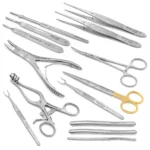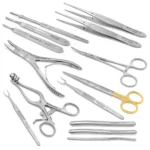Explore whether the Eredivisie or Ligue 1 is the best league for young football players. A deep dive into development pathways, opportunities, and success stories.
Eredivisie vs. Ligue 1: Which League Is Better for Young Footballers?
In the ever-evolving landscape of European football, young players are more crucial than ever. Clubs increasingly invest in youth development to nurture the next generation of superstars, and players are eager to find the best environment to grow technically, tactically, and mentally.
Two leagues consistently mentioned in conversations about youth development are the MQM Bet Eredivisie (Netherlands) and Ligue 1 (France). Both have produced elite talent, built strong youth systems, and developed reputations as stepping stones to top clubs in England, Spain, Germany, and Italy. But when it comes to nurturing young players, which league is truly better—the Eredivisie or Ligue 1?
Let’s dive deep into the strengths, philosophies, and player success stories of each league to find out.
Historical Track Record in Youth Development
Eredivisie: A Legacy of Technique and Philosophy
The Eredivisie, particularly through clubs like Ajax, PSV Eindhoven, and Feyenoord, has been a global reference point for youth development since the 1970s. The Dutch philosophy is rooted in Total Football, prioritizing:
-
Technical ability
-
Tactical intelligence
-
Positional versatility
Famous alumni include Johan Cruyff, Marco van Basten, Dennis Bergkamp, Arjen Robben, and more recently, Frenkie de Jong and Matthijs de Ligt.
Ligue 1: The Powerhouse of Physical and Tactical Growth
France has quietly become one of the top exporters of football talent. Ligue 1 clubs like Lyon, Monaco, Rennes, and Paris Saint-Germain have world-class academies that produce physically dominant and tactically versatile players.
Famous Ligue 1 graduates include Kylian Mbappé, Karim Benzema, N’Golo Kanté, Eduardo Camavinga, and Aurélien Tchouaméni.
Game Time for Young Players
Eredivisie: A Youth-First Mentality
The Dutch league is well known for giving young players early senior debuts. Clubs often field 17- or 18-year-olds in competitive matches, valuing development over short-term success. It’s not unusual to see half of an Eredivisie starting XI made up of players under 23.
-
Average debut age: 18–19
-
Top clubs like Ajax and AZ Alkmaar actively rotate youth players
-
Young players form the backbone of many teams
Ligue 1: Competitive but Demanding
Ligue 1 is a more physically demanding and tactically disciplined environment. While youth are still given opportunities—especially at clubs like Rennes and Lyon—the competition is stiffer, and mistakes can be more costly.
-
Average debut age: 19–20
-
Pressure to perform early is higher
-
PSG’s reliance on senior stars limits opportunities
Tactical and Technical Growth
Eredivisie: The Tactical Classroom
The Eredivisie is known as a “football school” where players learn:
-
Positional fluidity
-
Intelligent pressing systems
-
One-touch combinations
-
Playing out from the back
The style of play is very open, which gives young players more touches on the ball and more freedom to express themselves.
Ligue 1: A Laboratory of Physical and Tactical Excellence
Ligue 1 emphasizes:
-
Defensive discipline
-
Tactical shape
-
Transition play
-
Physical resilience
The league provides a more “realistic” preview of top-tier football, especially in terms of pace and physical battles.
Success Rate After Leaving the League
Eredivisie Graduates Abroad
-
Frenkie de Jong (Barcelona)
-
Donny van de Beek (Man United)
-
Steven Bergwijn (Tottenham)
-
Cody Gakpo (Liverpool)
-
Santiago Giménez (soon linked with La Liga)
While some adapt instantly, others struggle with the step up in intensity, showing that Eredivisie might not be as physically demanding.
Ligue 1 Graduates Abroad
-
Kylian Mbappé (PSG)
-
Aurélien Tchouaméni (Real Madrid)
-
William Saliba (Arsenal)
-
Christopher Nkunku (RB Leipzig to Chelsea)
-
Eduardo Camavinga (Real Madrid)
These players often transition more smoothly due to Ligue 1’s physical and tactical rigor. The league’s competitive nature better prepares them for the demands of elite-level football.
Infrastructure and Academies
Eredivisie
-
Ajax’s De Toekomst (The Future): Among the best academies globally.
-
AZ Alkmaar’s Model: Producing stars with a data-driven and psychology-first approach.
-
PSV’s De Herdgang: Known for balance between mental development and elite coaching.
Ligue 1
-
INF Clairefontaine: The French national academy, producing Thierry Henry and Mbappé.
-
Lyon Academy: Known for producing consistent elite talent.
-
Rennes Academy: Rising as a talent machine for midfielders.
Market Visibility and Transfers
Eredivisie
-
Strong track record of selling to big clubs
-
More emphasis on selling for development
-
Seen as a launchpad league
Ligue 1
-
More expensive transfer fees
-
Clubs like Monaco and PSG maximize player value
-
Seen as a “finishing school” for elite-level readiness
Cultural Factors
Dutch League Culture
-
Focus on teamwork, player education, and mental growth
-
Easier adaptation for European players due to open culture
-
Media pressure is moderate—ideal for sensitive young stars
French League Culture
-
More multicultural and physically demanding
-
Higher expectations from fans and media
-
Rewards players who thrive under pressure
Which League Is Better for Young Players?
If you’re a technical, intelligent player looking for a place to develop and showcase your skills with consistent minutes, the Eredivisie may be the better option. Its supportive environment and emphasis on freedom allow young stars to flourish and make mistakes as part of the learning curve.
If you’re a physically strong, mentally tough player seeking preparation for the rigors of elite football, Ligue 1 might give you the tools to succeed at the highest level. Its defensive discipline and faster tempo resemble what players will encounter in top-five European leagues.
In many ways, both leagues are perfect—just for different types of players and development goals.
Conclusion
When comparing Eredivisie and Ligue 1, it’s not about which league is better in absolute terms. It’s about which is better for the specific type of young player looking to grow. Both leagues have strong academies, provide meaningful opportunities, and shape global stars year after year.
Ultimately, choosing between Eredivisie and Ligue 1 depends on the player’s strengths, long-term goals, and readiness for physical or tactical demands.
Are you passionate about football development and the journey of young stars? Support the league that gives future icons their first chance to shine. Whether it’s the Eredivisie’s tactical freedom or Ligue 1’s elite preparation, every league needs fan support to nurture tomorrow’s legends.
Support youth. Support growth. Support the league.












